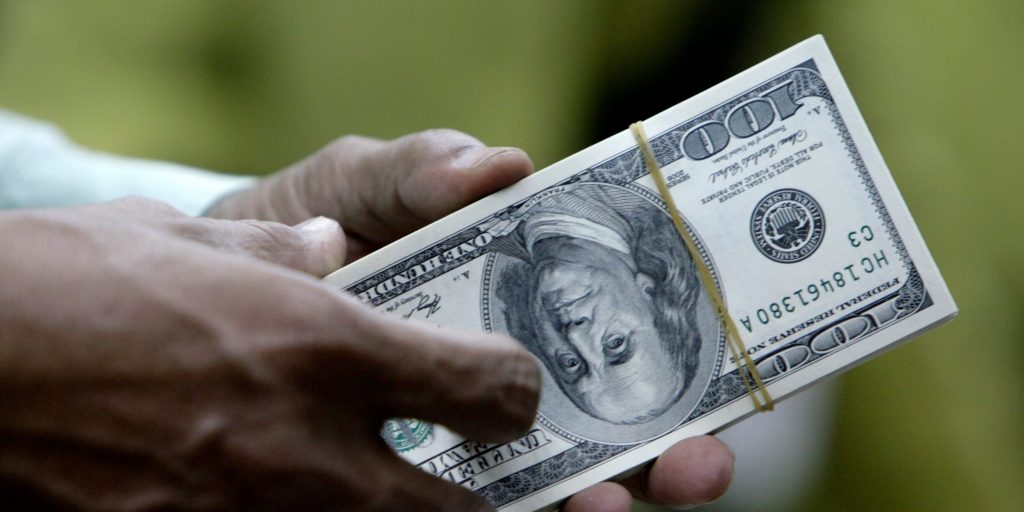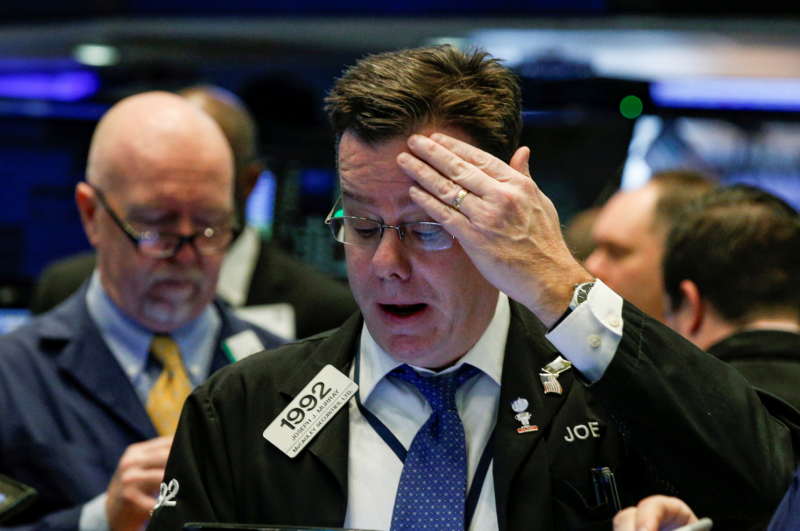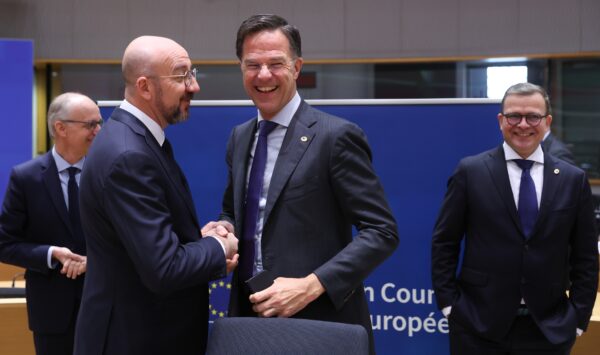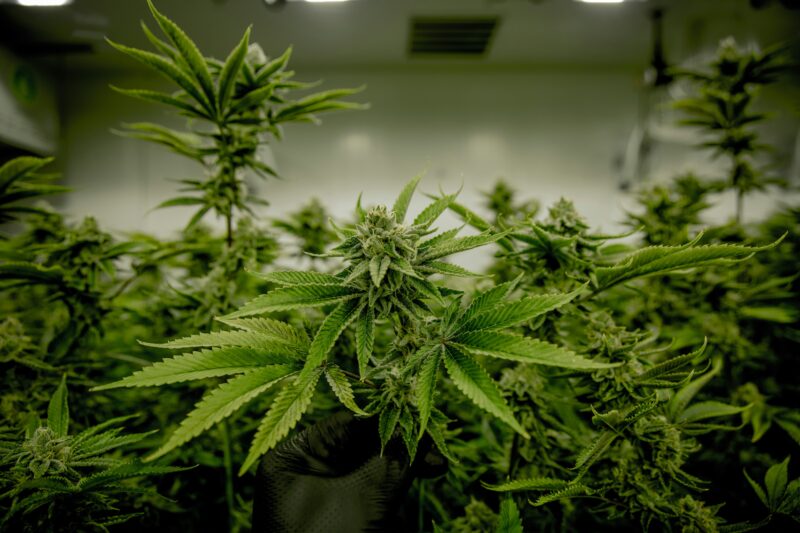- Red and blue states alike are sending out new stimulus checks to offset the pain of high inflation.
- The checks probably won't worsen inflation, but they aren't a lasting solution, one economist said.
- Fixing supply chains, boosting wages, and improving production are more effective measures.
Republicans have blamed President Joe Biden's stimulus checks for fueling inflation, but states controlled by both parties have recently been sending out direct payments of their own to ease the pain of rising prices.
Experts say there's little reason to worry about it making inflation worse. Instead, Americans should worry about what governments are doing to stop inflation at the source.
Eighteen states including California, Colorado, Idaho, and Indiana have rolled out tax rebates in recent months aimed at providing households much-needed cash relief. The funds, governors argue, help offset the impact of soaring prices throughout the economy. Inflation in the US is at a 41-year high, and with Americans feeling horrible about the economy, governors are betting on plain old cash to provide some support.
Garrett Watson, a senior policy analyst at the nonpartisan think tank Tax Foundation, isn't too concerned the payments will exacerbate inflation broadly at the outset, but he told Insider stimulus may not be the best way to ease the strain on people's wallets.
"Nationwide, it's unlikely that they would significantly contribute to inflation, but in terms of direction, that is where they would go" if consumers start spending money that's parked in state revenue departments.
Watson added that while some view state stimulus payments as a viable way to offset rising costs of food and gas, it's a "balancing act" for states in terms of how they're handling "this potentially being a temporary influx of cash both in terms of American Rescue Plan funding and the revenue trends that they're seeing, versus making permanent changes in state tax policy or spending."
The payments represent upside risks to inflation, but the actual effects would be "marginal," Thomas Hogan, a senior research faculty member at the American Institute for Economic Research, told Insider. State governments don't raise cash by selling debt as the federal government does, and Treasury auctions helped "crowd out" some of the inflationary effects of the pandemic stimulus packages, Hogan said.
That won't happen at the state level, but the extent to which tax rebates could lift inflation is probably minor, he added.
"It could have some effect, but it'll depend on whether people save or spend that money, and whether they spend it locally or on things from Amazon or something like that," Hogan said, later adding that there are very few studies that shine much light on the effects of state stimulus checks.
Others aren't so convinced. A new round of checks is a "nice idea," but Americans tend to spend much more when they suddenly come across a windfall of cash, Jared Dillian, an investment strategist at Mauldin Economics, said in a June 29 Bloomberg Opinion column.
California represents the worst offender, according to Dillian, as its program is among the most generous and set to deliver aid to 23 million people. At a time when inflation sits at historic highs, spurring another spending spree is an unnecessary risk, he added.
"Newsom's rebates represent economic illiteracy of the highest order," he said. "Of course, the intent is not to fight inflation. The intent is to redistribute, and curry favor with voters."
While Watson acknowledged the political benefits of delivering direct payments, he noted that both Biden's checks and the ones that states are currently carrying out were intended to combat rising costs largely caused by a public health crisis, and "no one was expecting the inflation of this magnitude" when deciding implementation.
Stimulus checks are a 'temporary bridge,' not a permanent solution
States' plans mirror the federal government's response to the coronavirus recession, which involved three rounds of stimulus checks by Presidents Trump and Biden.
Democrats said the size and scope of the plan were necessary, given pandemic uncertainty, but Republican lawmakers seized the opportunity to blame rising inflation on the stimulus.
"I think that there's no question that the $2 trillion bill last year overheated the economy, and it's why we have the mess that we have today," GOP Sen. John Thune said during a hearing last month referring to the American Rescue Plan in early 2021.
But several other factors also contributed to the extraordinary price growth seen today. The global supply chain remains badly snarled, leaving businesses under pressure to match high demand with ample inventories. Companies are passing much of the higher shipping costs on to consumers. Russia's invasion of Ukraine has also kept commodities prices elevated, affecting everything from gas prices to food costs.
But Watson noted that while stimulus checks might bring a temporary reprieve, directly tackling the elements that are causing gas and food prices to be so high is the best place to start.
"If we think people who are struggling with rising costs need support, addressing inflation issues, energy issues directly would be the way to solve that in a sustainable way," Watson said. "Because these checks were meant to be a temporary bridge getting over an issue. Not as a permanent solution to pressing problems."
A new round of tax rebates can fill some of the financial hole left by inflation, but it doesn't strike at the core problem, Jonathan Wolff, a professor of economics at Miami University of Ohio, told Forbes earlier in July. Governments should instead prioritize the supply side of the problem and try to boost production, he added.
"Give people a stronger incentive to work, and remove the disincentives to stay on the sidelines," Wolff said. "Governments can do this by temporarily reducing income taxes and ending COVID-era stimulus programs like eviction moratoriums and student loan forbearance."
Watson also noted the idea of implementing automatic stabilizers, or safety nets in place that would automatically balance out economic fluctuations — but he said such policies have not gained significant traction because policymakers want to be able to oversee those policies in times of economic crisis.










